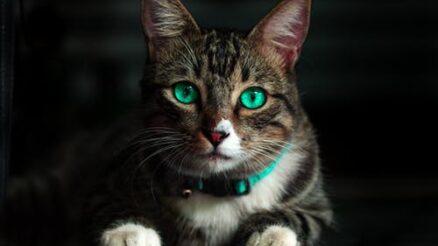Cats mature in varied ways depending on their breed, activity level, and diet, but they typically begin in their senior years, about eight. As your cat ages, its health can drastically decline. Most of the time, these changes go unrecognized. At the beginning of illness or pain, cats conceal their signs of discomfort.
The disease will have advanced extensively when owners discover their cat acts oddly. Make sure your elderly cat has a long life in good health with regular yearly examinations as well as preventive blood screenings and senior nutrition counseling. So, it is important to learn about the different cat diseases and their symptoms.
Top Symptoms of Geriatric Feline
If you’ve got a cat, then you’re aware of how timid cat owners can become. They can be playful and happy one minute and then be withdrawn the next. Like humans, cats have physical challenges with age. Read more to discover the most prevalent diseases that affect older cats.
1. End-Stage Renal Disease
The most prevalent CKD5 is feline kidney disease. It is caused by decreasing kidney (renal) function with time. The kidney’s role is to filter pollutants from the blood and remove these from the body by urine. Waste items build up in your cat’s circulation with no sufficient filtering, leading to an increase in weight, lethargy as well as vomiting, and lack of appetite.
They may consume more fluids and pee in more significant amounts. High blood pressure is another aspect caused by CKD5 (hypertension). Although kidney function lost can’t be regained, early detection could aid in creating a diet and treatment plan to stop the severity of the condition. To learn more about the services of a reputable veterinarian, do a quick search on the web.
2. Cardiovascular Disease
Cats suffering from heart disease (cardiomyopathy) generally do not exhibit apparent signs. The subtle changes in their behavior, such as lethargy or weight loss, may signal pet owners’ problems. Still, a comprehensive physical exam and diagnostic test are the best methods to identify the presence of heart problems in felines early.
After your vet has listened to your cat’s chest with the stethoscope, they will look for any signs that may indicate that your cat might be sick. The symptoms of the illness include an unusual or irregular heartbeat and fluid accumulation or congestion within the lungs, and murmurs.
3. Diabetes
Diabetes mellitus is a metabolic condition that occurs when the pancreas is unable to make insulin or when your cat’s body cannot utilize insulin adequately to manage the levels of blood glucose (“blood sugar”).
In addition to losing weight, diabetic cats typically suffer from an increased frequency of drinking water, food, and urine. It can cause ketoacidosis, liver damage (a life-threatening condition), and secondary infection with bacteria.
4. Arthritis
It might surprise you, but arthritis is widespread in cats. However, the signs are usually brushed aside, with blame being placed on “growing older.” Stiff joints, more napping, and a decrease in interest in the catnip mice could all be signs that your cat’s senior is in too much discomfort to be active.
A few people might notice that your cat has stopped leaping onto her window sill or waits on the floor, waiting to be snatched up and put upon the couch. Changes in behavior in your cat are not noticeable and are gradual, but they may be revealing about their feelings. A geriatric veterinarian can maintain and ensure your senior pet’s health and wellness.
5. Hyperthyroidism
It’s an ailment in which the thyroid gland generates excess thyroid hormones that increase your cat’s metabolism and create many challenges. If the disease isn’t addressed, the persistently fast heart rate might cause severe cardiac damage. Hypertension is a possibility and can cause damage to vital organs like kidneys, eyes, the heart, and the brain.
This higher metabolic rate increases the burning of calories. This is why cat owners who notice the loss of weight despite an intense appetite will often take their cats to the veterinarian to have an evaluation. Go now, and book an appointment with your veterinarian for a routine check up for your pet.

